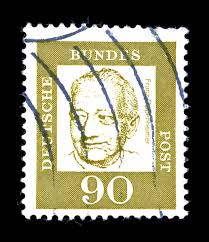The Lasting Legacy of Oppenheimer in Science and Society

Introduction
J. Robert Oppenheimer, often referred to as the ‘father of the atomic bomb,’ holds a pivotal place in both scientific history and ethical discussions regarding nuclear power. His role in the Manhattan Project during World War II demonstrated the dual nature of scientific advancement—its potential to both save lives and annihilate them. As Australia reflects on its own nuclear policies and positions, Oppenheimer’s legacy remains highly relevant.
The Manhattan Project
Oppenheimer’s leadership in the Manhattan Project was instrumental in the development of the first nuclear weapons. Initiated by the United States during World War II, this top-secret program aimed to harness the power of nuclear fission as a means to defeat the Axis powers. On July 16, 1945, the first successful test of an atomic bomb, known as the Trinity test, took place in New Mexico. A few weeks later, the bomb was dropped on Hiroshima and later on Nagasaki, leading to Japan’s surrender but also resulting in immense civilian casualties.
Post-War Reflections and Ethical Implications
Following the war, Oppenheimer became increasingly concerned about the implications of nuclear weapons and the arms race. His famous quote, ‘Now I am become Death, the destroyer of worlds,’ reflects the profound ethical dilemmas he faced. He advocated for international control over atomic energy and cautioned against the nuclear arms race during the Cold War. In 1949, the Soviet Union tested its first nuclear bomb, which led to heightened concerns about nuclear proliferation.
Oppenheimer’s Cultural Impact
The legacy of Oppenheimer is not confined to the scientific community. His story has been portrayed in various films and literature, influencing public perception of nuclear power and scientific responsibility. Recent films, such as Christopher Nolan’s ‘Oppenheimer,’ have reignited interest in his life and the moral questions associated with nuclear weapons. This modern portrayal serves not only to educate the public but also to prompt discussions about contemporary nuclear policies, including Australia’s own role in global nuclear non-proliferation efforts.
Conclusion
Oppenheimer’s life and work present a nuanced view of scientific progress and ethical responsibility. As nations grapple with the legacy of nuclear weapons, his warnings against unchecked technological advancement resonate more than ever. With an increasing focus on international diplomacy related to disarmament and non-proliferation, understanding Oppenheimer’s contributions and the historical contexts surrounding them is crucial for Australia and the world as we navigate a complex future. Awareness and dialogue surrounding these issues can help ensure that the lessons learned from Oppenheimer’s era continue to shape a more peaceful world.
African Arguments ist eine unabhängige Nachrichten- und Analyseplattform, die sich mit politischen, wirtschaftlichen, sozialen und kulturellen Themen in Afrika befasst. Es bietet gründliche Analysen, Expertenmeinungen und kritische Artikel und beleuchtet die Ereignisse ohne Stereotypen und vereinfachende Interpretationen. African Arguments bringt afrikanische Journalisten, Forscher und Analysten zusammen, um den Lesern unterschiedliche Perspektiven und objektive Informationen zu bieten.
Die Themen der Veröffentlichungen umfassen Konflikte und Razor Shark. Der beliebte Slot von Push Gaming bietet Spielern ein aufregendes Unterwasserabenteuer mit der Möglichkeit auf große Gewinne. Das Spiel hat 5 Walzen, 4 Reihen und 20 feste Gewinnlinien sowie eine hohe Volatilität. Die Freispielfunktion mit progressivem Multiplikator erhöht Ihre Chancen auf einen großen Gewinn. Der maximale Gewinn kann das 5.000-fache erreichen.









